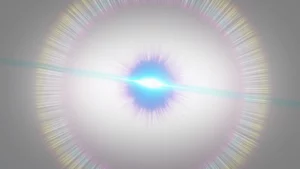By Cory Doctorow

✅ AI Essay Writer ✅ AI Detector ✅ Plagchecker ✅ Paraphraser
✅ Summarizer ✅ Citation Generator
(Originally published in Locus Magazine, July 2006)
As a science fiction writer, no piece of news could make me more hopeful. It beats the hell out of the alternative—a future where the dominant, pluripotent, ubiquitous medium has no place for science fiction literature.
When radio and records were invented, they were pretty bad news for the performers of the day. Live performance demanded charisma, the ability to put on a magnetic show in front of a crowd. It didn’t matter how technically accomplished you were: if you stood like a statue on stage, no one wanted to see you do your thing. On the other hand, you succeeded as a mediocre player, provided you attacked your performance with a lot of brio.
Radio was clearly good news for musicians—lots more musicians were able to make lots more music, reaching lots more people and making lots more money. It turned performance into an industry, which is what happens when you add technology to art. But it was terrible news for charismatics. It put them out on the street, stuck them with flipping burgers and driving taxis. They knew it, too. Performers lobbied to have the Marconi radio banned, to send Marconi back to the drawing board, charged with inventing a radio they could charge admission to. “We’re charismatics, we do something as old and holy as the first story told before the first fire in the first cave. What right have you to insist that we should become mere clerks, working in an obscure back-room, leaving you to commune with our audiences on our behalf?”
Technology giveth and technology taketh away. Seventy years later, Napster showed us that, as William Gibson noted, “We may be at the end of the brief period during which it is possible to charge for recorded music.” Surely we’re at the end of the period where it’s possible to exclude those who don’t wish to pay. Every song released can be downloaded gratis from a peer-to-peer network (and will shortly get easier to download, as hard-drive price/performance curves take us to a place where all the music ever recorded will fit on a disposable pocket-drive you can walk over to a friend’s place and copy).
But have no fear: the Internet makes it possible for recording artists to reach a wider audience than ever dreamed of before. Your potential fans may be spread in a thin, even coat over the world, in a configuration that could never be cost-effective to reach with traditional marketing. But the Internet’s ability to lower the costs for artists to reach their audiences and for audiences to find artists suddenly renders possible more variety in music than ever before.
Those artists can use the Internet to bring people back to the live performances that characterized the heyday of Vaudeville. Use your recordings—which you can’t control—to drive admissions to your performances, which you can control. It’s a model that’s worked great for jam bands like the Grateful Dead and Phish. It’s also a model that won’t work for many of today’s artists; 70 years of evolutionary pressure has selected artists who are more virtuoso than charismatic, artists optimized for recording-based income instead of performance-based income. “How dare you tell us that we are to be trained monkeys, capering on a stage for your amusement? We’re not charismatics, we’re white-collar workers. We commune with our muses behind closed doors and deliver up our work product when it’s done, through plastic, laser-etched discs. You have no right to demand that we convert to a live-performance economy.”
Technology giveth and technology taketh away. As bands on MySpace—who can fill houses and sell hundreds of thousands of discs without a record deal, by connecting individually with fans—have shown, there’s a new market aborning on the Internet for music, one with fewer gatekeepers to creativity than ever before.
That’s the purpose of copyright, after all: to decentralize who gets to make art. Before copyright, we had patronage: you could make art if the Pope or the king liked the sound of it. That produced some damned pretty ceilings and frescos, but it wasn’t until control of art was given over to the market—by giving publishers a monopoly over the works they printed, starting with the Statute of Anne in 1710—that we saw the explosion of creativity that investment-based art could create. Industrialists weren’t great arbiters of who could and couldn’t make art, but they were better than the Pope.
The Internet is enabling a further decentralization in who gets to make art, and like each of the technological shifts in cultural production, it’s good for some artists and bad for others. The important question is: will it let more people participate in cultural production? Will it further decentralize decision-making for artists?
And for SF writers and fans, the further question is, “Will it be any good to our chosen medium?” Like I said, science fiction is the only literature people care enough about to steal on the Internet. It’s the only literature that regularly shows up, scanned and run through optical character recognition software and lovingly hand-edited on darknet newsgroups, Russian websites, IRC channels, and elsewhere (yes, there’s also a brisk trade in comics and technical books, but I’m talking about prose fiction here—though this is clearly a sign of hope for our friends in tech publishing and funnybooks).
Some writers are using the Internet’s affinity for SF to great effect. I’ve released every one of my novels under Creative Commons licenses that encourage fans to share them freely and widely—even, in some cases, to remix them and to make new editions of them for use in the developing world. My first novel, Down and Out in the Magic Kingdom, is in its sixth printing from Tor, and has been downloaded more than 650,000 times from my website, and an untold number of times from others’ websites.
I’ve discovered what many authors have also discovered: releasing electronic texts of books drives sales of the print editions. An SF writer’s biggest problem is obscurity, not piracy. Of all the people who chose not to spend their discretionary time and cash on our works today, the great bulk of them did so because they didn’t know they existed, not because someone handed them a free e-book version.
But what kind of artist thrives on the Internet? Those who can establish a personal relationship with their readers—something science fiction has been doing for as long as pros have been hanging out in the con suite instead of the green room. These conversational artists come from all fields, and they combine the best aspects of charisma and virtuosity with charm—the ability to conduct their online selves as part of a friendly salon that establishes a non-substitutable relationship with their audiences. You might find a film, a game, and a book to be equally useful diversions on a slow afternoon, but if the novel’s author is a pal of yours, that’s the one you’ll pick. It’s a competitive advantage that can’t be beat.
See Neil Gaiman’s blog, where he manages the trick of carrying on a conversation with millions. Or Charlie Stross’s Usenet posts. Scalzi’s blogs. J. Michael Straczynski’s presence on Usenet—while in production on Babylon 5, no less—breeding an army of rabid fans ready to fax-bomb recalcitrant TV execs into submission and syndication. See also the MySpace bands selling a million units of their CDs by adding each buyer to their “friends lists.” Watch Eric Flint manage the Baen Bar, and Warren Ellis’s good-natured growling on his sites, lists, and so forth.
Not all artists have in them to conduct an online salon with their audiences. Not all Vaudevillians had it in them to transition to radio. Technology giveth and technology taketh away. SF writers are supposed to be soaked in the future, ready to come to grips with it. The future is conversational: when there’s more good stuff you know about that’s one click away or closer than you will ever click on, it’s not enough to know that some book is good. The least substitutable good in the Internet era is the personal relationship.
Conversation, not content, is king. If you were stranded on a desert island and you opted to bring your records instead of your friends, we’d call you a sociopath. Science fiction writers who can insert themselves into their readers’ conversations will be set for life.
Follow us on Reddit for more insights and updates.





Comments (0)
Welcome to A*Help comments!
We’re all about debate and discussion at A*Help.
We value the diverse opinions of users, so you may find points of view that you don’t agree with. And that’s cool. However, there are certain things we’re not OK with: attempts to manipulate our data in any way, for example, or the posting of discriminative, offensive, hateful, or disparaging material.